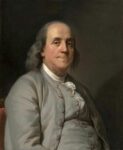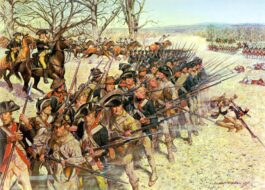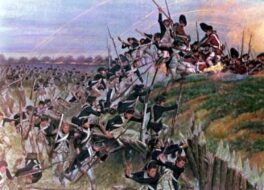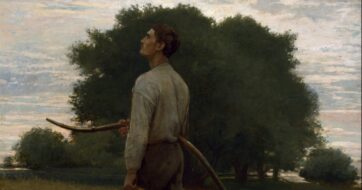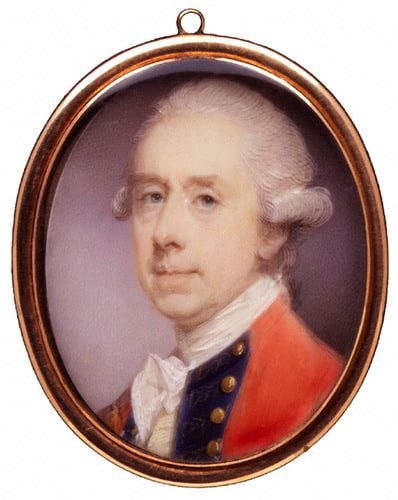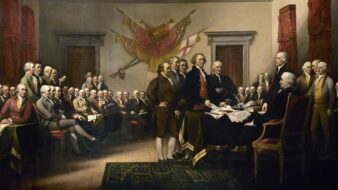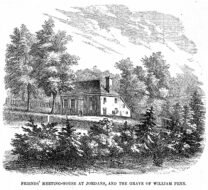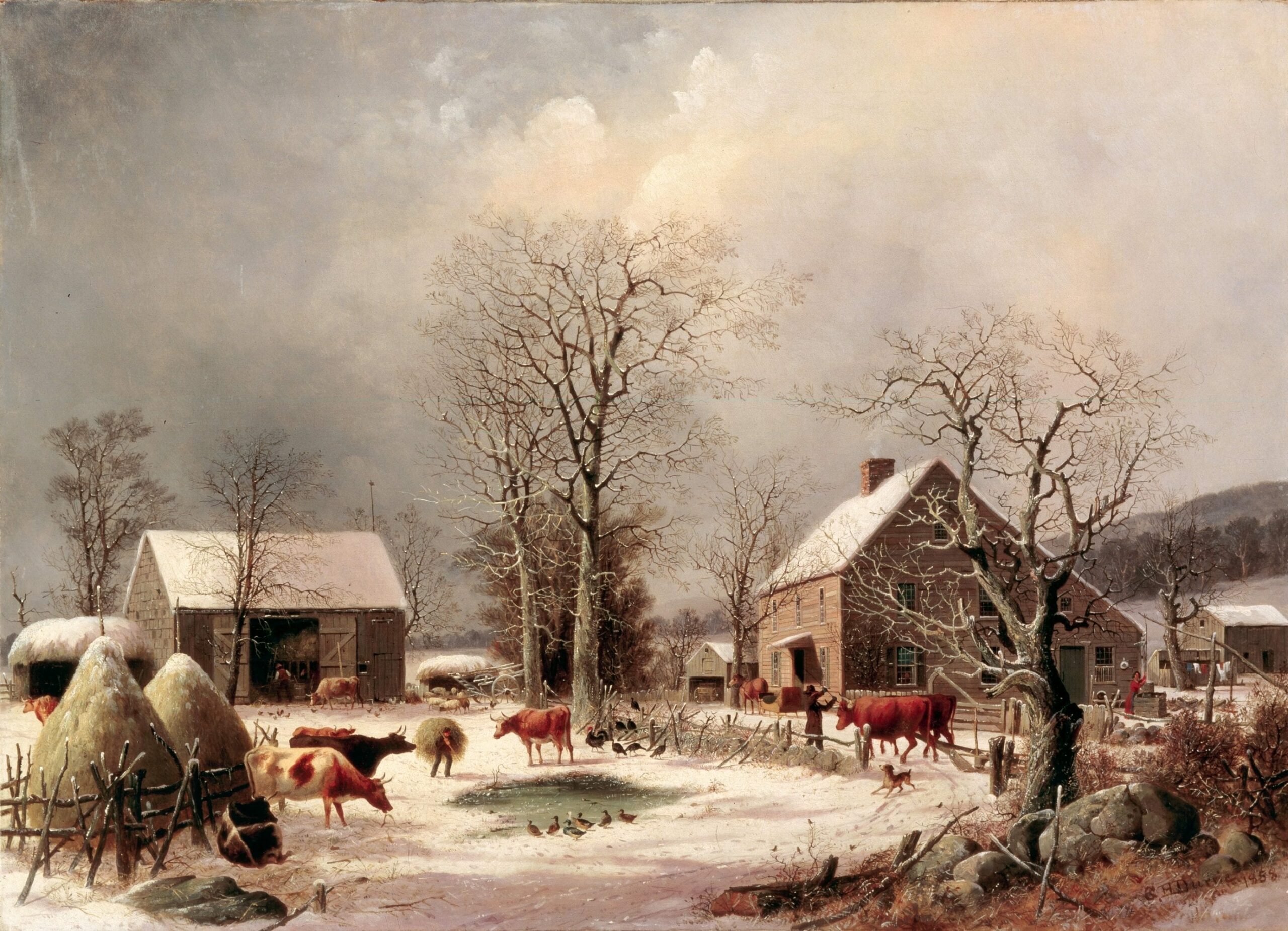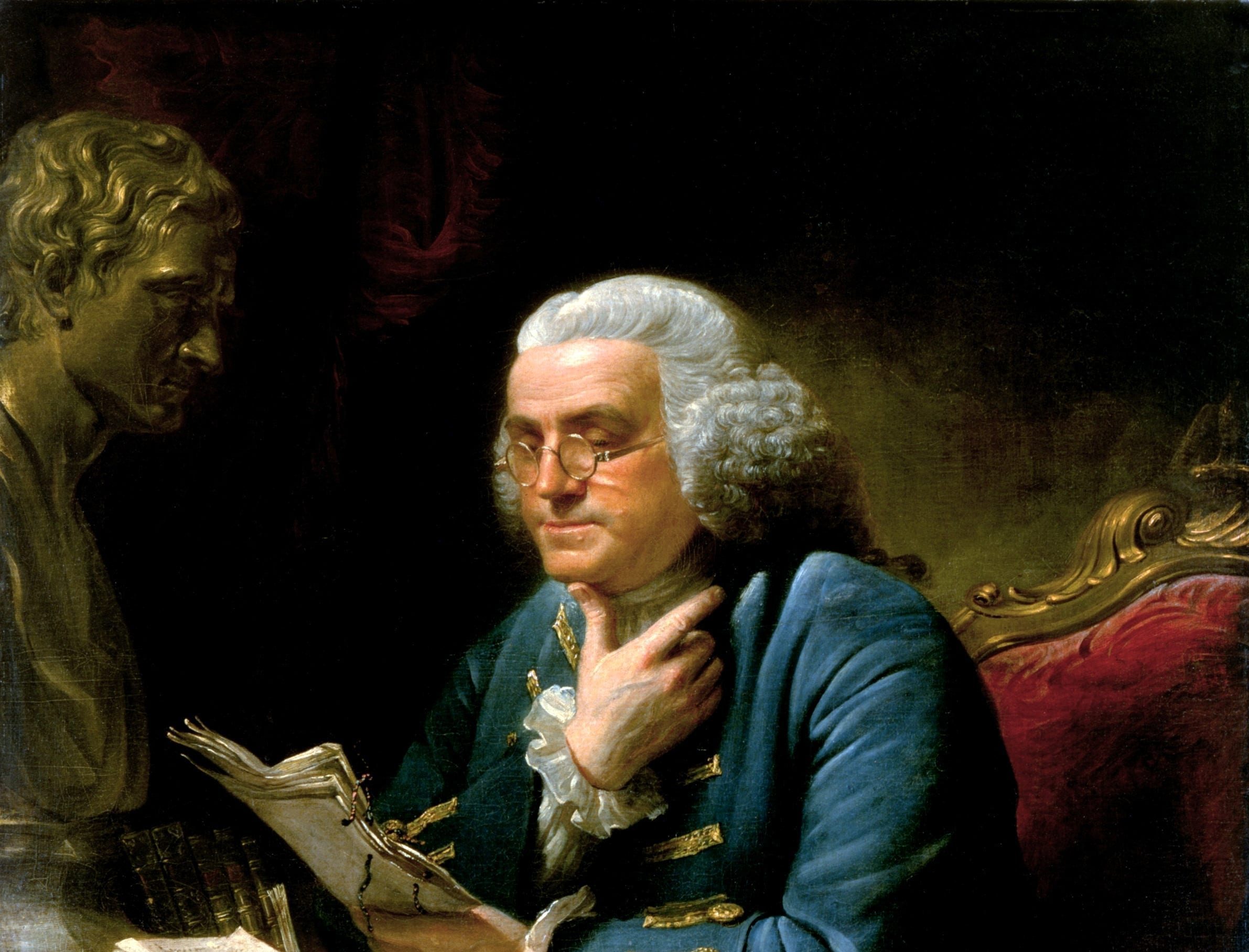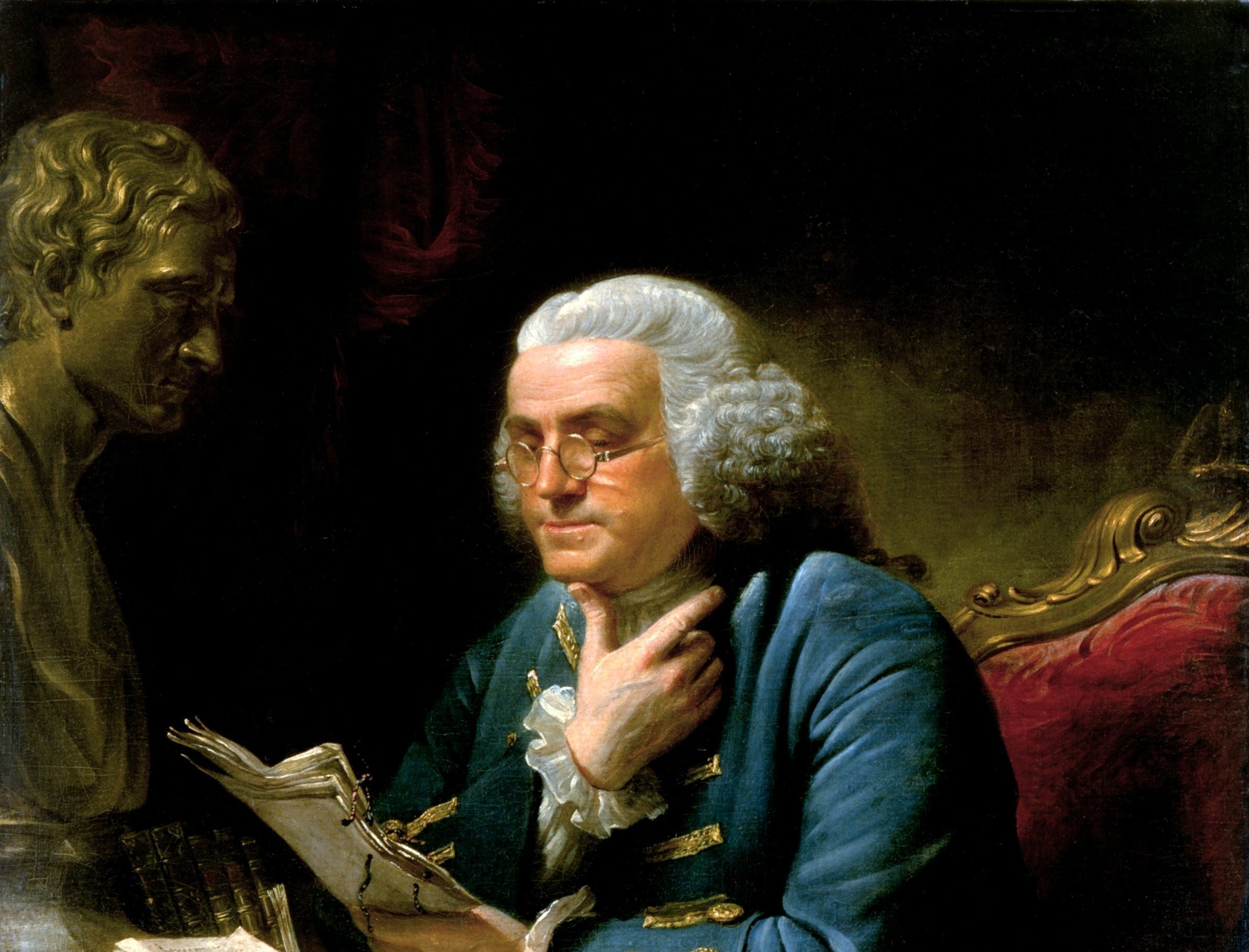
Introduction
Born to unmarried parents on the Caribbean island of Nevis, the early life of Alexander Hamilton (1755/57–1804) is so obscure that not even the year of his birth is known with certainty. At some point his father abandoned his family—possibly to shield his mother, still legally married to another man, from charges of bigamy. Even before his mother succumbed to yellow fever in 1768, Hamilton had become a clerk for merchants on the island of St. Croix.
Full of ambition, in 1769 Hamilton confessed that he “would willingly risk my life though not my character to exalt my station…. I wish there was a war.” With funds for his education contributed by patrons on St. Croix, in 1773 Hamilton arrived in New York City, where he enrolled at King’s College (now Columbia University) and quickly embraced the cause of resistance to British imperial policies.
In December 1774, in response to an attack on the Continental Association titled Free Thoughts on the Proceedings of the Continental Congress by “A. W. Farmer” (Reverend Samuel Seabury), Hamilton, writing as a “Friend to America,” published A Full Vindication of the Measures of Congress. Shortly thereafter, Seabury authored his rejoinder to Hamilton’s pamphlet, A View of the Controversy Between Great-Britain and her Colonies. Eager to have the last word, Hamilton responded again with The Farmer Refuted. Here, Hamilton’s discussion of “natural rights” and the “state of nature,” together with his recounting of the “vengeance” heaped on Boston by the 1774 Coercive Acts, makes clear that mounting tensions between Britain and the American colonies had raised the stakes. Was Hamilton’s 1769 wish for a war on the verge of being fulfilled?
Source: Alexander Hamilton, The Farmer Refuted, &c., [February 23,] 1775, Founders Online, National Archives (first published in Harold C. Syrett and Jacob E. Cooke, eds., The Papers of Alexander Hamilton, 27 vols. [New York: Columbia University Press, 1961–87], 1:86–89, 121, 135–36). https://founders.archives.gov/ documents/Hamilton/01-01-02-0057
… I shall, for the present, pass over to that part of your pamphlet, in which you endeavor to establish the supremacy of the British Parliament over America. After a proper eclaircissement[1] of this point, I shall draw such inferences, as will sap the foundation of everything you have offered.
The first thing that presents itself is a wish, that “I had, explicitly, declared to the public my ideas of the natural rights of mankind. Man, in a state of nature (you say) may be considered, as perfectly free from all restraints of law and government, and, then, the weak must submit to the strong.”
I shall, henceforth, begin to make some allowance for that enmity, you have discovered to the natural rights of mankind. For, though ignorance of them in this enlightened age cannot be admitted, as a sufficient excuse for you; yet, it ought, in some measure, to extenuate your guilt. If you will follow my advice, there still may be hopes of your reformation. Apply yourself, without delay, to the study of the law of nature. I would recommend to your perusal Grotius, Pufendorf, Locke, Montesquieu, and Burlamaqui.[2] I might mention other excellent writers on this subject; but if you attend, diligently, to these, you will not require any others.
There is so strong a similitude between your political principles and those maintained by Mr. Hobbes,[3] that, in judging from them, a person might very easily mistake you for a disciple of his. His opinion was, exactly, coincident with yours, relative to man in a state of nature. He held, as you do, that he was, then, perfectly free from all restraint of law and government. Moral obligation, according to him, is derived from the introduction of civil society; and there is no virtue, but what is purely artificial, the mere contrivance of politicians, for the maintenance of social intercourse. But the reason he run into this absurd and impious doctrine, was, that he disbelieved the existence of an intelligent superintending principle, who is the governor, and will be the final judge of the universe.
As you, sometimes, swear by him that made you, I conclude, your sentiment does not correspond with his, in that which is the basis of the doctrine, you both agree in; and this makes it impossible to imagine whence this congruity between you arises. To grant, that there is a supreme intelligence, who rules the world, and has established laws to regulate the actions of his creatures, and, still, to assert, that man, in a state of nature, may be considered as perfectly free from all restraints of laws and government, appear to a common understanding, altogether irreconcilable.
Good and wise men, in all ages, have embraced a very dissimilar theory. They have supposed, that the deity, from the relations, we stand in, to himself and to each other, has constituted an eternal and immutable law, which is, indispensably, obligatory upon all mankind, prior to any human institution whatever.
This is what is called the law of nature, “which, being coeval[4] with mankind, and dictated by God himself, is, of course, superior in obligation to any other. It is binding over all the globe, in all countries, and at all times. No human laws are of any validity, if contrary to this; and such of them as are valid, derive all their authority, mediately[5] or immediately, from this original.” BLACKSTONE.[6]
Upon this law, depend the natural rights of mankind, the supreme being gave existence to man, together with the means of preserving and beatifying that existence. He endowed him with rational faculties, by the help of which, to discern and pursue such things, as were consistent with his duty and interest, and invested him with an inviolable right to personal liberty, and personal safety.
Hence, in a state of nature, no man had any moral power to deprive another of his life, limbs, property or liberty; nor the least authority to command, or exact obedience from him; except that which arose from the ties of consanguinity.
Hence also, the origin of all civil government, justly established, must be a voluntary compact, between the rulers and the ruled; and must be liable to such limitations, as are necessary for the security of the absolute rights of the latter; for what original title can any man or set of men have, to govern others, except their own consent? To usurp dominion over a people, in their own despite, or to grasp at a more extensive power than they are willing to entrust, is to violate that law of nature, which gives every man a right to his personal liberty; and can, therefore, confer no obligation to obedience.
“The principal aim of society is to protect individuals, in the enjoyment of those absolute rights, which were vested in them by the immutable laws of nature; but which could not be preserved, in peace, without that mutual assistance, and intercourse, which is gained by the institution of friendly and social communities. Hence it follows, that the first and primary end of human laws, is to maintain and regulate these absolute rights of individuals.” BLACKSTONE.[7]
If we examine the pretensions of Parliament, by this criterion, which is evidently a good one, we shall presently detect their injustice. First, they are subversive of our natural liberty, because an authority is assumed over us, which we by no means assent to. And secondly, they divest us of that moral security, for our lives and properties, which we are entitled to, and which it is the primary end of society to bestow. For such security can never exist, while we have no part in making the laws that are to bind us and while it may be the interest of our uncontrolled legislators to oppress us as much as possible.
To deny these principles will be not less absurd, than to deny the plainest axioms: I shall not, therefore, attempt any further illustration of them….
… I have taken a pretty general survey of the American charters,[8] and proved to the satisfaction of every unbiased person, that they are entirely discordant with that sovereignty of Parliament, for which you are an advocate. The disingenuity[9] of your extracts (to give it no harsher name) merits the severest censure, and will no doubt serve to discredit all your former, as well as future, labors in your favorite cause of despotism….
… Boston was the first victim to the meditated vengeance. An act was passed to block up her ports and destroy her commerce with every aggravating circumstance that can be imagined. It was not left at her option to elude the stroke by paying for the tea, but she was also to make such satisfaction to the officers of his majesty’s revenue and others who might have suffered as should be judged reasonable by the governor. Nor is this all, before her commerce could be restored, she must have submitted to the authority claimed and exercised by the Parliament.
Had the rest of America passively looked on, while a sister colony was subjugated, the same fate would gradually have overtaken all. The safety of the whole depends upon the mutual protection of every part. If the sword of oppression be permitted to lop off one limb without opposition, reiterated strokes will soon dismember the whole body. Hence it was the duty and interest of all the colonies to succor and support the one which was suffering. It is sometimes sagaciously urged, that we ought to commiserate the distresses of the people of Massachusetts, but not intermeddle in their affairs, so far as perhaps to bring ourselves into like circumstances with them. This might be good reasoning, if our neutrality would not be more dangerous, than our participation. But I am unable to conceive how the colonies in general would have any security against oppression if they were once to content themselves with barely pitying each other, while Parliament was prosecuting and enforcing its demands. Unless they continually protect and assist each other, they must all inevitably fall a prey to their enemies.
Extraordinary emergencies require extraordinary expedients. The best mode of opposition was that in which there might be an union of councils. This was necessary to ascertain the boundaries of our rights; and to give weight and dignity to our measures, both in Britain and America. A Congress was accordingly proposed, and universally agreed to.
You, sir, triumph in the supposed illegality of this body; but, granting your supposition were true, it would be a matter of no real importance. When the first principles of civil society are violated, and the rights of a whole people are invaded, the common forms of municipal law are not to be regarded. Men may then betake themselves to the law of nature; and, if they but conform to their actions, to that standard, all cavils[10] against them, betray either ignorance or dishonesty. There are some events in society, to which human laws cannot extend; but when applied to them lose all their force and efficacy. In short, when human laws contradict or discountenance the means… necessary to preserve the essential rights of any society, they defeat the proper end of all laws, and so become null and void.…
A sincere Friend to America
- 1. An explanation of something previously difficult to understand.
- 2. Political philosophers Hugo Grotius (1583–1645); Samuel von Pufendorf (1632–1694); John Locke (1632–1704); Charles-Louis de Secondat, Baron de La Brède et de Montesquieu (1689–1755); and Jean-Jacques Burlamaqui (1694–1748).
- 3. Political philosopher Thomas Hobbes (1588–1679).
- 4. Emerging from the same point of origin.
- 5. Through a sometimes slow process of negotiation.
- 6. William Blackstone, Commentaries on the Laws of England, 4 vols. (1765–70; Philadelphia: Robert Bell, 1771–72), 1:41.
- 7. Ibid., 124.
- 8. The colonies’ constitutions.
- 9. Disingenuousness, dishonesty, untruthfulness.
- 10. Frivolous objections.
Novanglus
March 06, 1775
Conversation-based seminars for collegial PD, one-day and multi-day seminars, graduate credit seminars (MA degree), online and in-person.
